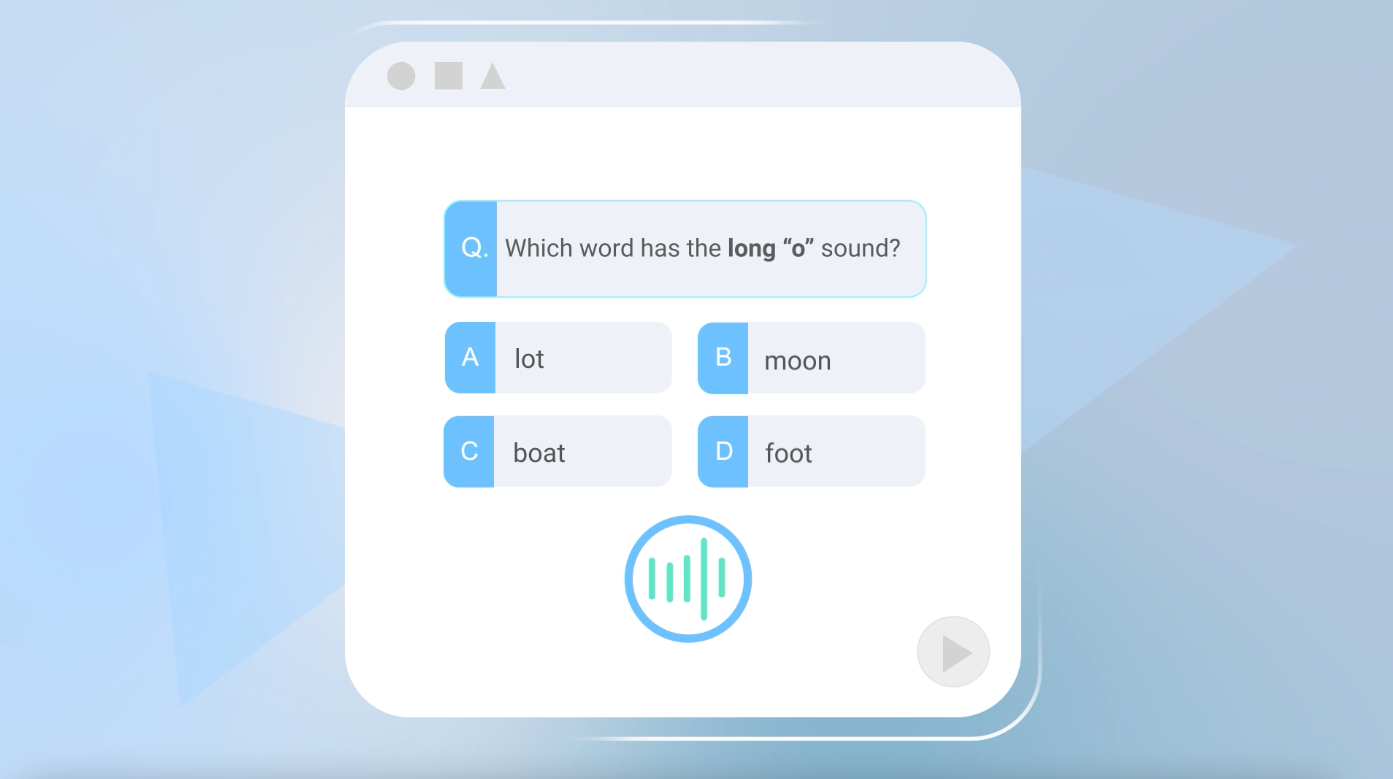Voice-enabled MCQs are hot. Here’s why.
March 19, 2021

As many of you know, multiple-choice tests are a robust form of objective assessment where respondents select the best answer to a question from a list of options. When written with intention, multiple-choice questions (MCQs) are very effective in literacy because they can test higher-order learning and comprehension.
Thanks to voice technology, MCQs are now moving beyond the shade-in-answer-and-wait type experience. They’re becoming interactive experiences where students receive immediate feedback on the quality of their reading comprehension.
Voice-enabled MCQs also provide teachers and school districts with a set of unique and objective data to better understand students’ learning strengths and pain points. For more insights into the data points generated, read this recent post.
MCQs can play an important role at every stage of a child’s literacy journey, from phonics through to fluency and comprehension. When voice-enabled, MCQs engage the child more deeply in the lesson content and give them the feedback they need to progress confidently and easily.
“Instead of circling an answer on a test sheet or pressing a button on a screen, voice technology makes assessments more natural, more effective, and more fun for kids. The data they serve up to teachers is also uniquely valuable.” Jon Hume, VP Global EdTech Sales
Voice-enabled MCQs are a hot topic in our discussions these days with edtech clients, and edtech pioneer Amplify was first to bring them live using our voice engine in August 2020.
Is voice on the roadmap for your assessment products? If so, get started today for an accurate, age-appropriate, and easy-to-integrate solution.
Learn more:
- Watch: Here’s what voice-enabled MCQ assessments look like
- Listen back: Our SXSW EDU 2020 panel discusses how voice tech transforms assessments
- Discover: “Assessments Are Fun!” – How we power Lingumi’s English-language assessments




